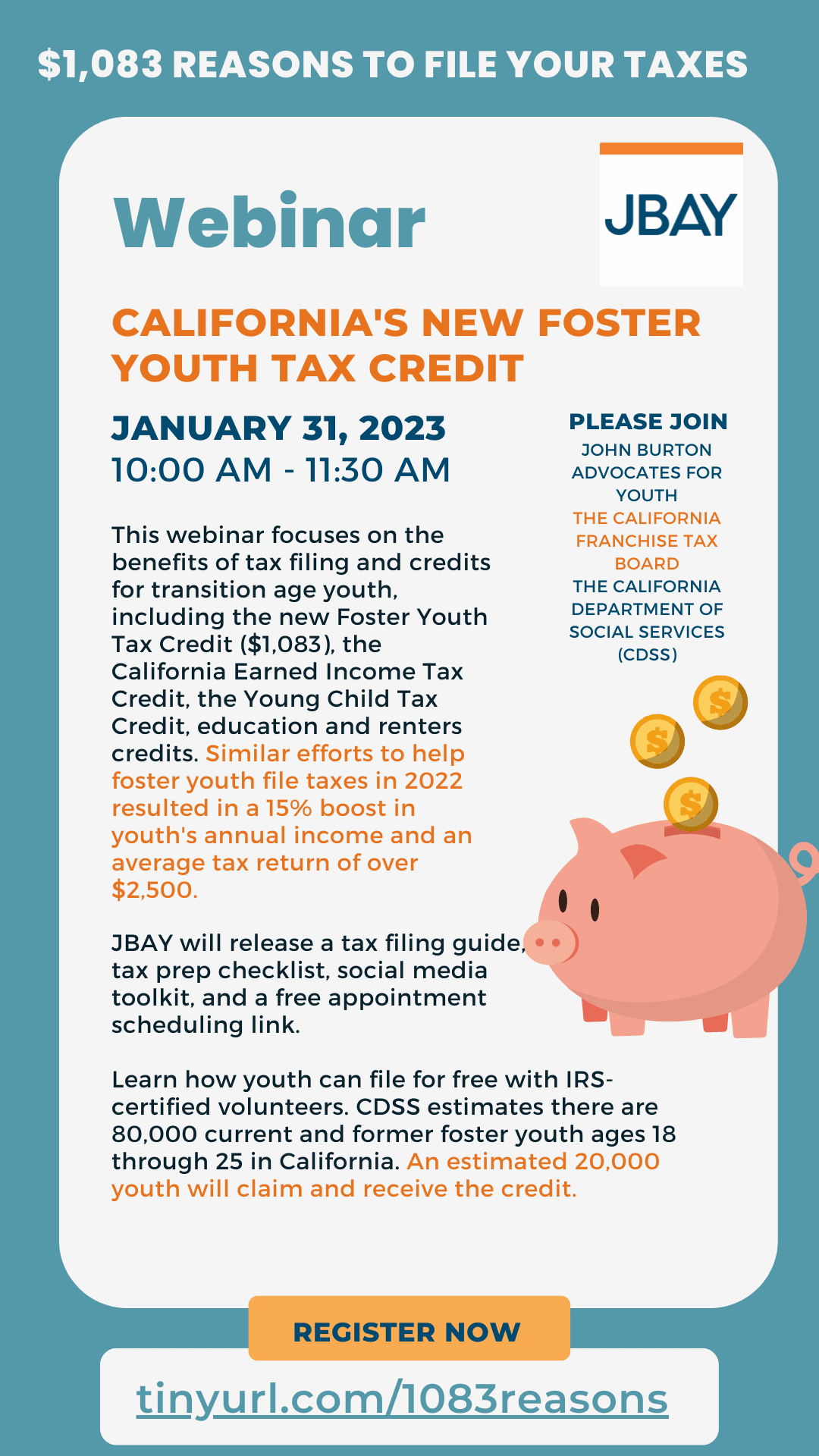- AboutJohn Burton Advocates for Youth improves the quality of life for youth in California who have been in foster care or homeless by advocating for better laws, training communities to strengthen local practices and conducting research to inform policy solutions.
- Our Work
- EventsNo data was found
- ResourcesBy Category:By Resource Type:
- Donate
- Advocate

